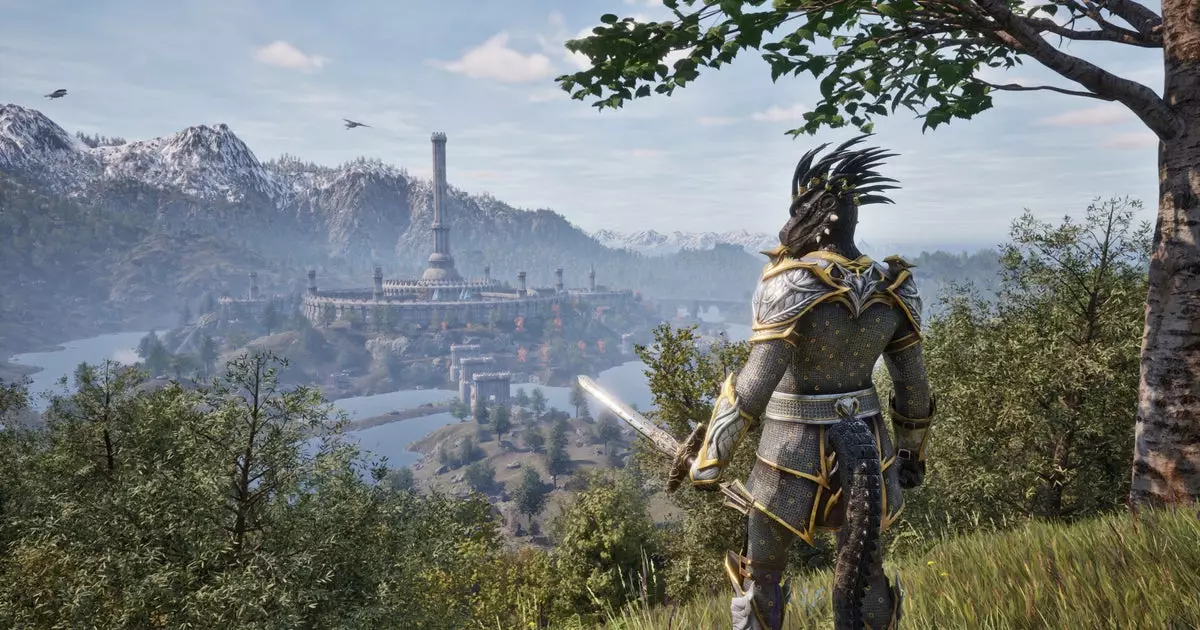The gaming community has a long-standing relationship with modding, a phenomenon that sees players stretch the boundaries of gaming possibilities. Recently, The Elder Scrolls IV: Oblivion received a shiny remaster, reigniting the flames of creativity within its dedicated fanbase. Despite the lack of official mod support from Bethesda, an avalanche of mods—over 90 and counting—have inundated the modding platforms in less than a 24-hour span post-launch. This immediate surge highlights an astonishing reality: that the passion and dedication of modders remain unfazed by the constraints imposed by developers. The remaster isn’t just a visual overhaul; it’s an invitation for gamers to redefine the parameters of their experiences in Tamriel.
Rediscovering the Classics
One of the most riveting aspects of this remaster is the rediscovery of classic mods from the original Oblivion. A player shared their delightful experience of reviving a simple mod dating back to 2008, which enhances the starting prison experience by integrating powerful late-game armor right from the beginning. This retroactive compatibility, albeit requiring some technical fiddling with the plugins.txt file, breathes new life into the game, allowing players to tap into nostalgia while enjoying modern enhancements. It is a marriage of old and new; the thrill of utilizing a beloved mod in a contemporary setting exemplifies the timeless creativity of the modding community.
Exciting Possibilities for Future Mods
As the modding community plunges into the depths of Oblivion’s mod library, the excitement is palpable. Modders are fast discovering that simpler concepts, particularly those revolving around model swaps, are feasible with some eloquent tweaks. They are leveraging Unreal Engine’s asset packaging to introduce a multitude of new models into the remaster. However, this exploratory phase isn’t without its challenges. The transition to a remaster means certain older mods—like texture upgrades—are rendered nearly obsolete, pushing a need for innovative thinking about what can be revitalized.
There’s also enormous potential in mods that introduce new quests, characters, or alter the very fabric of game mechanics, especially those tied to magic systems. The blend of nostalgia with fresh content could redefine how players interact with the world of Tamriel, making it a thrilling time to be both a player and a creator.
The Simplicity and Complexity of Modding
As expected, amidst a broader catalog, some modders have embraced the simplicity that often accompanies the remaster. Popularity on NexusMods reveals community desires for tweaks that enhance player experience without overhauling it entirely—such as vibrant color enhancements that reawaken memories of the vibrant landscapes and atmospheric settings of days gone by. The need for maintaining weapon durability has been eliminated in another mod—an attractive alteration for those favoring an uninterrupted gaming experience. Yet, isn’t there something integral to the Elder Scrolls feel in having to manage your inventory rigorously? The act of shedding excess baggage—arrows, pots, and trinkets—becomes a subtle art form that characterizes the RPG experience.
Embracing Change in the New Oblivion
With the remaster comes a plethora of graphical upgrades and gameplay renovations—new UI, altered character movements, fresh soundscapes, and Unreal’s dynamic lighting transform Oblivion into something visually compelling. One of the most significant changes is in the leveling system, a restructured element that aims to smooth out the divisive level scaling dynamics that players grappled with in the original release. The implications of these changes open fresh avenues for potential mods. It’s almost a rite of passage—will there be a daring risk-taker willing to integrate the old level scaling back into the remaster?
These alterations and new systems create a nuanced environment for mod developers to explore uncharted territories in gameplay, compelling them to reinvent the very nature of the game they once treasured. Indeed, the Oblivion remaster serves as a playground for creativity and nostalgia—a canvas for modders to splatter their passions across as they redefine what gaming means in a modern context.


Leave a Reply